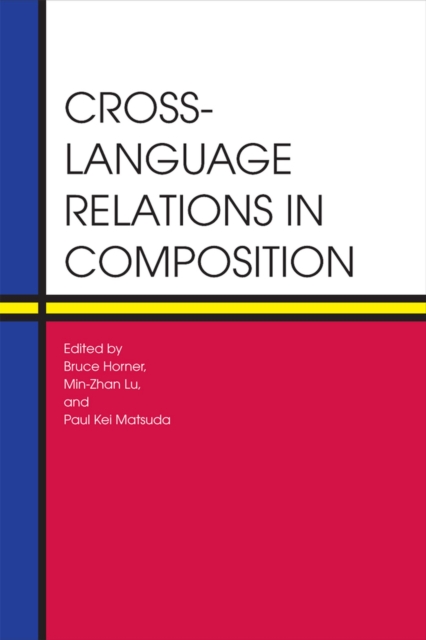
Cross-Language Relations in Composition Paperback / softback
Edited by Bruce Horner, Min-Zhan Lu, Paul Matsuda
Paperback / softback
Description
Cross-Language Relations in Composition brings together the foremost scholars in the fields of composition, second language writing, education, and literacy studies to address the limitations of the tacit English-only policy prevalent in composition pedagogy and research and to suggest changes for the benefit of writing students and instructors throughout the United States.
Recognizing the growing linguistic diversity of students and faculty, the ongoing changes in the English language as a result of globalization, and the increasingly blurred categories of native, foreign, and second language English speakers, editors Bruce Horner, Min-Zhan Lu, and Paul Kei Matsuda have compiled a groundbreaking anthology of essays that contest the dominance of English monolingualism in the study and teaching of composition and encourage the pursuit of approaches that embrace multilingualism and cross-language writing as the norm for teaching and research.
The nine chapters comprising part 1 of the collection focus on the origins of the “English only†bias dominating U.S. composition classes and present alternative methods of teaching and research that challenge this monolingualism.
In part 2, nine composition teachers and scholars representing a variety of theoretical, institutional, and professional perspectives propose new, compelling, and concrete ways to understand and teach composition to students of a “global,†plural English, a language evolving in a multilingual world.           Drawing on recent theoretical work on genre, complexity, performance and identity, as well as postcolonialism, Cross-Language Relations in Composition offers a radically new approach to composition teaching and research, one that will prove invaluable to all who teach writing in today’s multilingual college classroom.
Information
-
Out of Stock - We are unable to provide an estimated availability date for this product
- Format:Paperback / softback
- Pages:272 pages, 3
- Publisher:Southern Illinois University Press
- Publication Date:30/05/2010
- Category:
- ISBN:9780809329823
Information
-
Out of Stock - We are unable to provide an estimated availability date for this product
- Format:Paperback / softback
- Pages:272 pages, 3
- Publisher:Southern Illinois University Press
- Publication Date:30/05/2010
- Category:
- ISBN:9780809329823






